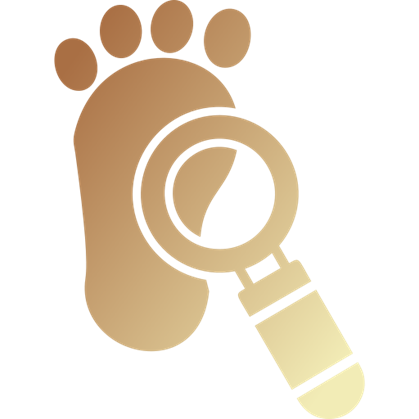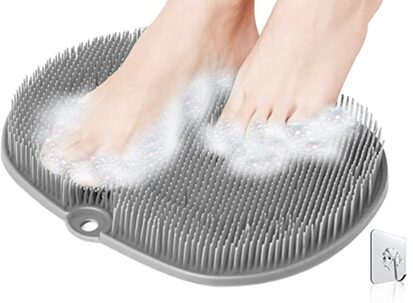Footcare
Click a link for more information:
Discussion Questions Sensory Stimulation Activities
Footcare
and footwear for someone living with dementia or memory problems is extremely
beneficial to not only their well-being, but also preventing falls.
Having unhealthy feet may mean people are less able and sensitive to maintaining balance and mobility. Looking after feet can help to prevent problems such as corns, calluses, bunions and ingrown toenails that can make people unsteady on their feet and at risk of a fall. Foot pain and loss of sensation (numbness) can also contribute to a fall.
Having poor foot care or neglected feet may increase the risk of a fall as well as have an impact on a person's everyday life. Appropriate foot care ensures comfortable feet which helps to make walking easier.
Poor footwear may impair the ability of the foot to balance and adjust position appropriately and quickly, this is important for walking especially on uneven surfaces. Inappropriate footwear can increase the risk of falls. Wearing footwear that's safe, appropriate and in good repair is an important factor when considering walking and mobility.
Top Tips for Footcare

- Change your socks or tights every day.
- If possible, wash your feet daily with warm water and mild soap. Rinse thoroughly and dry carefully (especially in between your toes).
- Do not soak your feet for longer than 10 minutes.
- Moisturise areas of hard skin (not between your toes) with a cream eg. E45, Vaseline Intensive Care, Nivea.
Nail care
- Cut your toe nails every week to keep them short.
- Filing your toenails can be just as effective as cutting them, and is also a safer option if you are struggling with your eyesight or reaching.
- Make sure to not cut down the sides of your toenails, as this can be a leading factor to ingrown toenails.
Good footwear
- Avoid thin soled shoes as these are not supportive
- If possible, go and get your feet measured to ensure your shoes fit perfectly to your size.
- Try not to go and buy new shoes later on in the day, as feet can swell up throughout the day.
Good things to look out for in a shoe
- Cushioned
- Light weight
- Flexible sole
- Good grip
- Avoid backless footwear
- Ensure heel height is not above 1.5 inches (3 centimetres)
Winter care
- Wear warm socks, tights or stockings.
- Avoid tight fitting socks, tights, stockings and shoes as these reduce the circulation to your feet.
- A simple fleecy or foam insole in the bottom of your shoe can help to insulate your feet. Ensure that there is enough room in your footwear for the insoles.
- Do not sit too near the fire or direct heat as you could easily burn your legs and feet.
- Bed socks are better and safer than hot water bottles
If someone is struggling to reach to clean in between their toes, there are small items of equipment which can be used. For Example:

This foot scrubber is comprised of soft bristles. You place it in the shower or bath with soap or shower gel and rub your feet over it to wash them. This is easier if you have a shower seat or stool. It can also help to reduce the demands of the task, decreasing fatigue and stimulate circulation. The mat could also be attached to a shower wall and used to wash your back. There are suction cups underneath ensuring good adhesion to the surface. It is portable and easy to transport if going away.